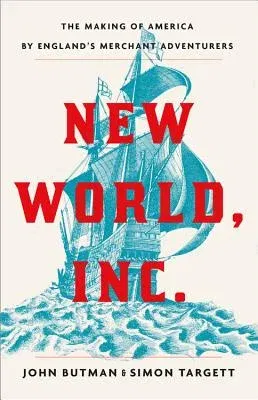Three generations of English merchant adventurers-not the Pilgrims, as
we have so long believed-were the earliest founders of America.
Profit-not piety-was their primary motive.
Some seventy years before the Mayflower sailed, a small group of
English merchants formed "The Mysterie, Company, and Fellowship of
Merchant Adventurers for the Discovery of Regions, Dominions, Islands,
and Places Unknown," the world's first joint-stock company. Back then,
in the mid-sixteenth century, England was a small and relatively
insignificant kingdom on the periphery of Europe, and it had begun to
face a daunting array of social, commercial, and political problems.
Struggling with a single export-woolen cloth-the merchants were forced
to seek new markets and trading partners, especially as political
discord followed the straitened circumstances in which so many English
people found themselves.
At first they headed east, and dreamed of Cathay-China, with its silks
and exotic luxuries. Eventually, they turned west, and so began a new
chapter in world history. The work of reaching the New World required
the very latest in navigational science as well as an extraordinary
appetite for risk. As this absorbing account shows, innovation and
risk-taking were at the heart of the settlement of America, as was the
profit motive. Trade and business drove English interest in America, and
determined what happened once their ships reached the New World.
The result of extensive archival work and a bold interpretation of the
historical record, New World, Inc. draws a portrait of life in London,
on the Atlantic, and across the New World that offers a fresh analysis
of the founding of American history. In the tradition of the best works
of history that make us reconsider the past and better understand the
present, Butman and Targett examine the enterprising spirit that
inspired European settlement of America and established a national
culture of entrepreneurship and innovation that continues to this day.

